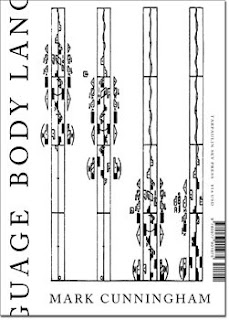3 New Titles from Tarpaulin Sky
New from TSky, check and buy!
 Teresa K. Miller
Teresa K. Miller
Forever No Lo
Chapbook. Poetry
4″ x 4.75″, saddle-sewn, french flaps, 36 pages
November 2008
$10 includes shipping in the US
– click here for more info & images
– click here to order
Vehicular homicide, relationship dissolution by imperceptible degrees, genocide, terror by war, linguistic disorientation—though not equivalent, they interact in Forever No Lo, through the self-consciously philosophical and the mundane swallowing international crisis. The setting is Portugal, but it is also East Oakland, Rwanda, Chicago, Iraq, nowhere discernible. The language fragments multivocally in broken Portuguese, elementary French, and dialectical English. This serial poem asks what comes of global and personal tragedy—what grows, haunts, decays, redeems—in the gut, on the news, or from local communities.
 Brandon Shimoda
Brandon Shimoda
The Inland Sea
Chapbook. Poetry.
6″ x 8″, perfectbound, black endsheets, 40 pages.
November 2008.
$10 includes shipping in the US
– click here for more info
– click here to order
In remembrance of and in thinking through the grand and generative compromises of birth, migration, dementia, sacrifice and ancestor worship, The Inland Sea is a raveling entreaty for the life of both a family departed and a family spectrally present in both complex breath and body. Spiritually addressed to Midori Shimoda, as well as factually to the inland seascapes of his birth (Hiroshima, Japan, thrice, in 1909, 1910 and 1911) and death (Lake Norman, North Carolina, the United States, once, 1996), The Inland Sea navigates the substance between origination and departure, in an attempt to find a relic of responsible and radiant life outside of benighted time. Composed of doubts, dissolutions, laments and a widening circumference of water and hope, The Inland Sea is a soft, yet urgent, ceremony, through which the ruptures of the past might find celebratory echo, and keep—
ISBN: 9780977901975
Prose Poetry. 5″x7″, 136 pages
Perfectbound, tête-bêche
– Click here for more info
– Order here ($14 includes shipping in the US)
Two full-length collections of prose poems contained in Body Language, one titled Body (on parts of the body) and one titled Primer (on numbers and letters), together form a diptych investigating the body in language and language in the body.
Advance Praise for Body Language
In Mark Cunningham’s asymptotic collection, two discreet texts, Body and Primer, form a provocative, loopic continuum in which prose poems “defining” body parts (The Spleen, The Pituitary Gland, The Pimple, The Thumb) mesh with an abecedarium/cipher concerning topics as various as fate, reality, and phenomenology. With its trope of clue-like instruction and unique, flip-book embodiment, Cunningham‘s book creates a kind of hybrid detective f(r)iction, an intrepid mash-up of high and low cultures in which the reader is as likely to encounter Rilke and Proto-Sinaitic inscription as Lacan, Film Noir, The Three Stooges, cell phones, higher mathematics, binary thought, and Coyote and Road Runner cartoons. Cunningham pitches with surprising clarity the most abstract meditations (“The sperm cell is the first zero. The vagina the second. Wait—before you floated in the placenta (the third), your mother floated and your father floated in theirs, and before them their others and their fathers . . . . You get dizzy, as in that moment in Citizen Kane when Kane pauses after leaving his wife’s bedroom and image after image recedes in mirror reflecting mirror. Another thing about DNA: if space curves, so does time,” for example, from “O as a Beginning”), offering in almost reportorial style a (d)evolutionary mix of anachronistic, equally relentless somatic and figurative explorations of the body (“a paradise of sorts”) and the mind. Northrop Frye called a riddle “essentially a charm in reverse . . . the revolt of the intelligence against the hypnotic power of commanding words.” Cunningham’s work moves in this direction; as Frye would put it, “Poem and object are very quizzically related: there seems to be some riddle behind all riddles which we have not yet guessed.” These poems are not the mere game-playing of an extraordinarily gifted and restless intellect; stalked by pain, fear, guilt, and the burden of awareness,, they can also be tender, betraying a capacity for happiness: “I rarely talk about myself, but I’ll tell you this: one of the best days I’ve had was when I passed a cinema and decided right then to see The Cameraman. Another time, I switched restaurants at the last minute, and met an acquaintance there, and ate with her, and three years later we’re still going out.” As obsessed as they are with the ironies and processes of mind and body, the poet’s concern is ever with the mysteries this human armature holds up: “life itself.”
—Lisa Russ Spaar, author of Satin Cash and Blue Venus, and editor of Acquainted with the Night and All That Mighty Heart: London Poems.
About the Authors
Teresa K. Miller received her MFA from Mills College. Her work has appeared in Tarpaulin Sky, ZYZZYVA, Columbia Poetry Review, MiPOesias, Coconut, DIAGRAM, Shampoo, and others. Originally from Seattle, she currently teaches in Oakland.
Brandon Shimoda was born in California, and has since lived in five countries and nine states, most recently North Carolina and Montana. His writings have made appearances in Colorado Review, Denver Quarterly, Fence, jubilat, Octopus Magazine, Practice: New Writing + Art, TYPO, Verse and elsewhere, as well as in two recent book projects, Lake M (Corollary Press) and The Alps (Flim Forum Press). He currently lives in the state of Washington, where he takes part in the lives of both Slope magazine and Wave Books, among other takings, partings and taking-aparts.
Mark Cunningham lives in central Missouri. He is the author of 80 Beetles (Otoliths, 2008) and two chapbooks from Right Hand Pointing, Second Story and the forthcoming nightlightnight.

